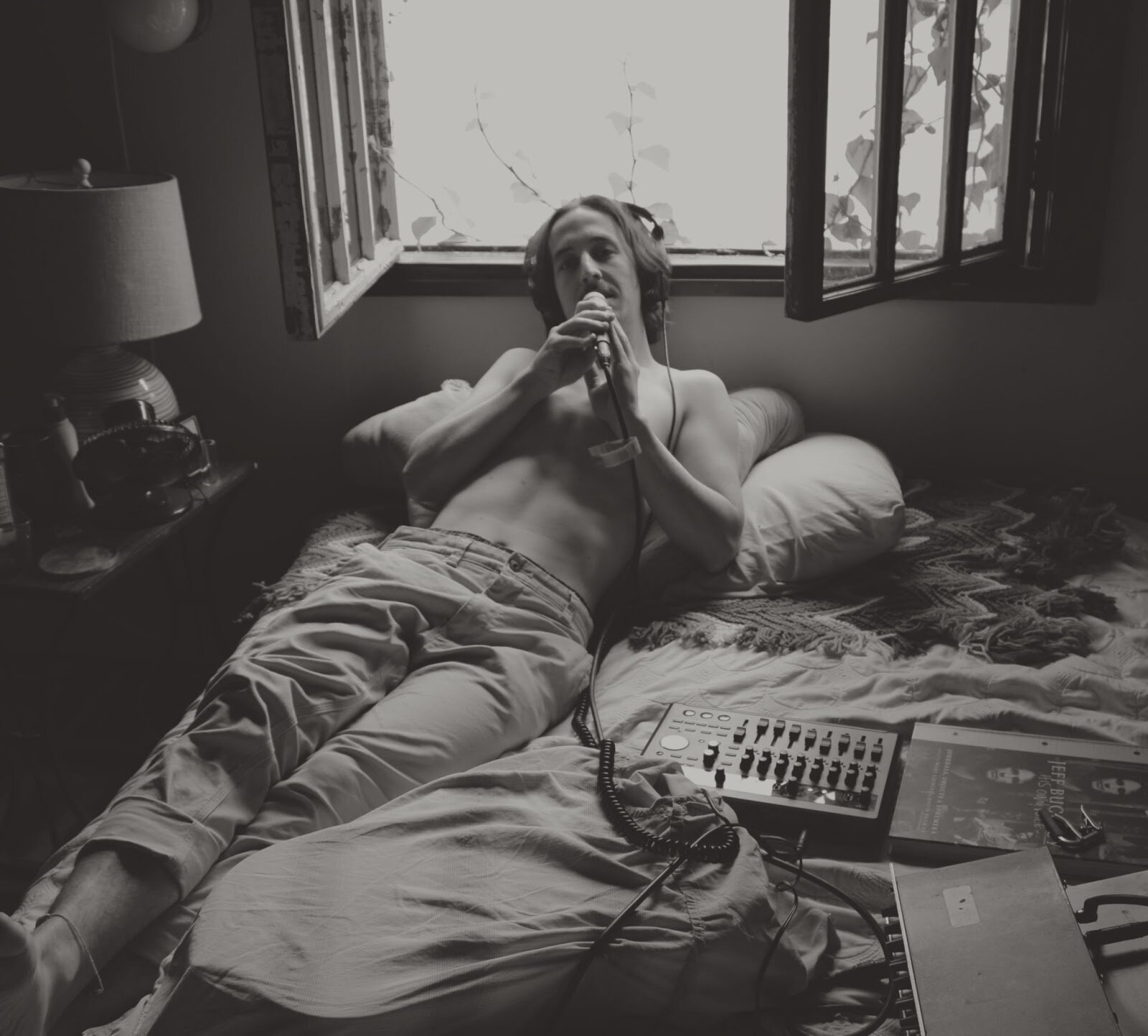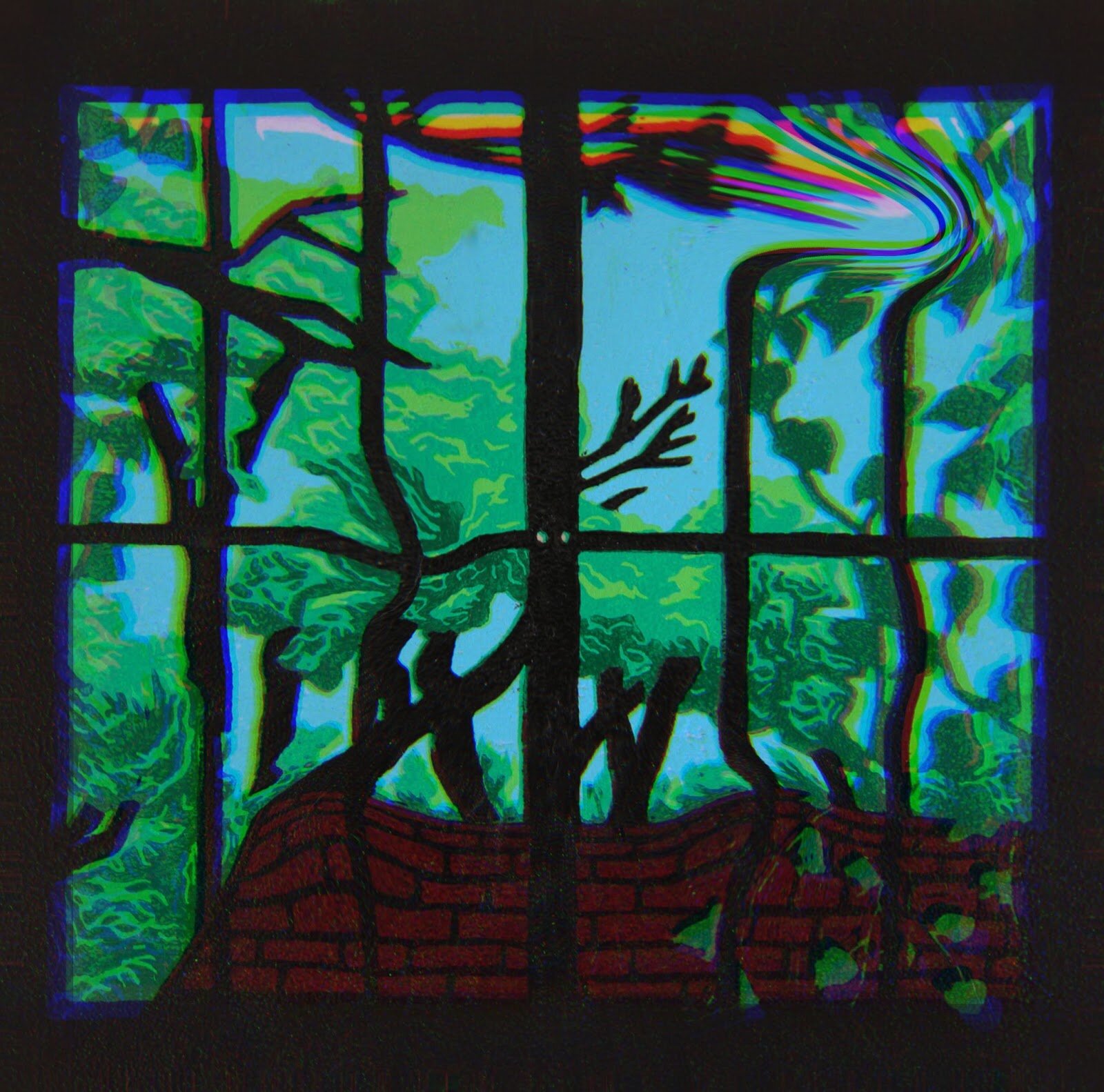Interview: The Art Within William Maxwell's Music
The Austin-based artist chats about his new album, the art book alongside it, and a few thoughts in between.
Written by Redding Downie Mickler
Photo courtesy of PorchFire Records
Authenticity is the most striking characteristic of William Maxwell, his new album, and its accompanying art book. His second solo release, It’s Been Here Changing For A Long Time, fills your ears with stomach-butterfly strumming and expert guitar solos, but more importantly, prose that sits with you. The complexity of each track’s instruments melding with his voice is both true and free, with the sincere dedication of a song a friend wrote for you. These stirrings are products of hard work and love, a rare combination that is immediately understood when filing through the homemade art book — and especially as the album unfolds through headphones. The songs vary with hints of Austin folk, fast-paced drums, heartfelt guitar, and a raspy, yet strong voice. Listening to It’s Been Here Changing For a Long Time is an invitation into a community of a special few who get to enjoy the meaning and feeling behind the work and art. Maxwell let Afterglow pick his brain in a discussion about his most recent project.
Afterglow: You’re proud of how you created the music for It’s Been Here Changing For A Long Time, let’s talk about it.
Maxwell: Pretty much, I had a Tascam portastudio, it’s like a little digital machine with eight tracks on it and the idea with this album was to make something because I could do it ... So I had this little guy, and I thought I could make something uniquely beautiful. Not even unique, but beautiful — and I was encouraged to … so I did a lot of tracking on that.
Two of the songs had drums on it, so I tracked those at Feel Flows studio [before COVID] … I had some friends send me some tracks and eventually there was like, a song or two I had to pull up to edit on the computer to really make them sound half decent. Mostly, it was sitting in this little treehouse bedroom, this little thing has a tiny screen and it's mostly moving these little knobs, twisting things and trying to play the perfect take because you can’t really edit on it.
Is there something that sticks out to you through the creation process?
Maxwell: I think I’ve learned that it’s good to be proud of the work that goes into something more so even than the product. I mean, I’m proud of the work and just the fact that I did it. All that was put into it. It’s not just work, it’s also very emotional, yeah, there’s a lot of love in it. These songs are songs that I’ve played so much, without lyrics, and putting this record together — it’s just like here they are. These are really the songs that I have, and want, and played, and loved, and really lived. I lived with them in certain ways, and I’m really proud of that.
Image courtesy of Mireille Blond
What was your reasoning for creating an art book to come out with the album?
Maxwell: I think it's really fun to dig through those booklets and the covers of CD’s; not even buying CD’s just standing in a record store with my friends going through albums and making each other laugh … Those booklets are just special. Art is just wonderful and it's nice to accompany music with that. It's really nice to read the lyrics while you’re listening to a song and combine that with a visual aspect.
I don’t think I’d be able to pull this off without the help of Will [Clark] and Mireille [Blond]. Definitely not, they put so much hard work to it. It was really fun.
The page with the scan of a book page stood out to me, what’s it all about?
Maxwell: Muss es sein? It’s German. The lyrics painted over the page are from “Drifted.” I like the idea of Muss es sein in the background — I don’t know if anyone will catch that. Meaning, “Must this be?”
The page for “Idyll” also stuck out to me.
Maxwell: It’s a football field. You can see the lyrics on the scoreboards and if the song had another title it would be, “so hard to say goodnight.” All the lyrics are written around it because of Macgruber. One of the nights the song is [written] about was the night of the Super Bowl. It's kind of reflected [in the art]. I work in an elementary school, so I have access to child’s scissors and construction paper and stick glue. You can see where some of it got sun-bleached then the other half stayed the same, it’s kind of funny.
Which art sticks out to you the most?
Maxwell: The block prints are pretty awesome. The “Forever” one, or any of them really, you can see different colors — it means that [Mireille] added another layer. She starts off with this full block and carves this first layer. I’m not going to do it justice — you carve out more and more, and add layers and layers and layers. You need to think about which layers go where and how you’re gonna add them later on. I think that's so cool.
Also, the painting for “Drifted” is a massive painting (2 feet by 2 feet). Mireille painted it and it’s pretty funny. We were supposed to go to Puerto Rico, we were so stoked. We didn’t get to go, but we got a painting out of it. It's hilarious, do you not see the pizza?
Image courtesy of Mireille Blond
So cliche — what draws you to making music?
Maxwell: It’s fun.
What I put into my own personal songs ... I feel as if I try to put the truth. I want to play music on a really honest level for myself. To me, that means the emotion of a song and what that means. You’re writing from your heart, and whenever you play, you're coming from your heart. It's what you’re putting out. This is my art that I want to keep truthful to me and honest to me.
I like music that changes my mind about things and that is so unique to someone, yet so honest and ... I don’t know. I really just want to hear what the hell someone has to say for themselves.
Music wisdom? Tell me about your experience with the music community in Austin.
Maxwell: Music is all about the connection [to music]. That's one really cool thing about being here [in Austin] is that I get to be around really special memories and connections to music ... And one thing I’m really starting to appreciate more and more is that I can really enjoy something that really only 20 of my friends and I listen to. That’s like the only people that listen to this music in the world, and no one knows about them. It blows your mind on how amazing they are, and it’s really amazing to have those connections.
Will’s Closing Tips: Check out Joni Mitchell and Cocteau Twins if you wanna hear some good music.
It’s Been Here Changing For a Long Time out now on Spotify.
Purchase the art book here.
This interview has been minimally edited for clarity and length.



